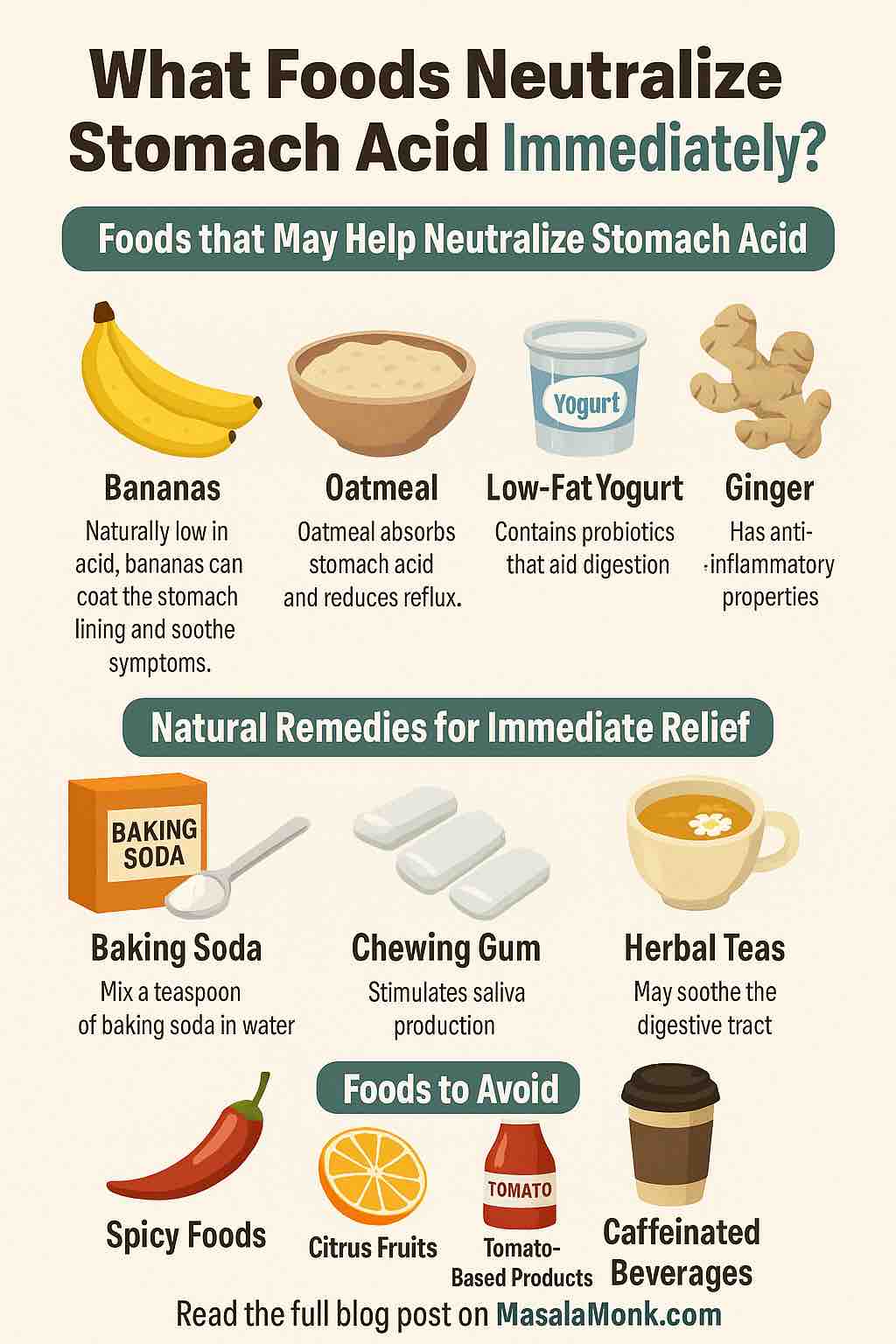
Gastroesophageal Reflux Disease (GERD) is a common digestive disorder that affects many people worldwide. Characterized by persistent heartburn and acid reflux, GERD can be both uncomfortable and concerning. But what causes it, and how can you find quick relief from heartburn? Let’s dive in.
What is GERD (Gastroesophageal Reflux Disease)?
GERD occurs when stomach acid frequently flows back into the tube connecting your mouth and stomach (esophagus). This acid reflux can irritate the esophagus lining, leading to the familiar burning sensation known as heartburn. For a deeper understanding of how certain beverages, like alcohol, can impact GERD, check out this comprehensive guide.
Causes of GERD- What Triggers Acid Reflux?
Gastroesophageal Reflux Disease (GERD) is a chronic digestive disorder where stomach acid frequently flows back into the esophagus. This backwash (acid reflux) can irritate the lining of the esophagus, leading to symptoms like heartburn. Understanding the causes of GERD can help in its management and prevention. Here are the primary causes:
1. Lower Esophageal Sphincter (LES) Abnormalities
The LES is a ring of muscle at the bottom of the esophagus that acts like a valve between the esophagus and stomach. In GERD, this valve doesn’t close properly, allowing acid to leak back into the esophagus.
2. Hiatal Hernia
A hiatal hernia occurs when the upper part of the stomach bulges through the diaphragm into the chest cavity. This can weaken the LES, making it easier for acid to back up into the esophagus.
3. Diet and Lifestyle Choices
Certain foods and beverages can weaken the LES or increase stomach acid production, including:
- Spicy foods
- Citrus fruits
- Tomatoes
- Chocolate
- Mint
- Garlic and onions
- Fatty foods
- Caffeinated drinks
- Alcohol
4. Smoking
Chemicals in tobacco can damage the LES, causing it to relax and allow acid to reflux into the esophagus.
5. Pregnancy
Hormonal changes during pregnancy can weaken the LES. Additionally, the growing fetus can increase pressure on the stomach, pushing stomach contents into the esophagus.
6. Medications
Certain medications can weaken the LES or irritate the esophagus lining, including:
- NSAIDs (nonsteroidal anti-inflammatory drugs)
- Certain asthma medications
- Antidepressants
- Calcium channel blockers
- Anticholinergics
7. Delayed Stomach Emptying
Delayed or slow stomach emptying can increase the risk of reflux. Conditions like gastroparesis can lead to this delay.
8. Obesity
Excess belly fat can put pressure on the stomach, pushing stomach contents into the esophagus.
9. Connective Tissue Disorders
Conditions like scleroderma can affect the muscles of the esophagus, leading to GERD symptoms.
10. Zollinger-Ellison Syndrome
This rare condition involves tumors in the pancreas or duodenum secreting large amounts of the hormone gastrin, leading to excess acid production.
Understanding the causes of GERD is the first step in managing its symptoms. Lifestyle changes, dietary modifications, and medications can help control GERD and prevent complications. If you experience frequent heartburn or other GERD symptoms, it’s essential to consult a healthcare professional for a proper diagnosis and treatment plan.
Quick Remedies for Heartburn Relief
Natural Remedies for Heartburn Relief
Heartburn, often described as a burning sensation that starts in the stomach and rises up to the throat, can be both painful and distressing. While there are numerous over-the-counter medications available, many individuals are turning towards natural remedies. These remedies not only offer relief but also come with the added benefit of enhancing overall digestive health. Here’s a comprehensive look at 15 traditional remedies:
1. Amla (Indian Gooseberry)
The Indian Gooseberry, or Amla, is more than just a sour fruit. It’s a reservoir of Vitamin C and antioxidants. In the ancient scriptures of Ayurveda, Amla is revered for its potent healing properties, especially concerning digestive health.
- How to Use: Starting your day with a glass of amla juice can be a game-changer. It soothes the stomach lining, reduces acid reflux, and promotes overall gut health.
- Product Highlight: Amla Sharbat is a delightful blend of homemade amla juice, ginger, and lemon juice, offering a tangy treat that’s also beneficial for your stomach.
2. Ginger Tea
Ginger, with its spicy undertones, has been a staple in traditional medicine across cultures. Its anti-inflammatory properties are known to combat stomach acid, reduce gas, and improve overall digestion.
- How to Use: A warm cup of ginger tea, especially after meals, can work wonders. For an added punch, sprinkle in some black pepper and rock salt.
- Product Highlight: The Guava Atoms incorporate ginger, enhancing the product’s ability to soothe the digestive system.
3. Fennel Seeds (Saunf)
Fennel seeds, with their aromatic and slightly sweet flavor, have been a favorite post-meal digestive in many Indian households. They are believed to have cooling properties, making them perfect for countering acidity.
4. Cumin (Jeera) Water
Cumin, a spice that has graced countless dishes with its warm and earthy flavor, is more than just a culinary delight. It’s a digestive powerhouse, known to alleviate symptoms of acid reflux and improve overall gut health.
- How to Use: Boiling a teaspoon of cumin seeds in water and sipping on this aromatic concoction can be a soothing ritual. It aids in digestion and helps combat acidity.
- Product Highlight: The Kacha Aam Bombs incorporate cumin, offering a tangy treat that’s also beneficial for your stomach.
5. Cardamom (Elaichi)
Cardamom, often referred to as the “queen of spices”, is a fragrant spice with a host of medicinal properties. Its cooling effect can be a balm for an irritated esophagus and stomach lining, helping neutralize excess acid.
- How to Use: Grinding cardamom and adding it to desserts or simply chewing on a pod can offer relief from heartburn.
- Product Highlight: The Anardana Atoms blend in cardamom, enhancing its flavor and digestive benefits.
6. Bananas and Apples
These fruits are nature’s antacids. Their natural fibers and enzymes help neutralize stomach acid, offering relief from heartburn.
- How to Use: Incorporating bananas and apples into your daily diet can be a proactive approach to preventing heartburn. They act as buffers, reducing the acidity levels in the stomach.
7. Chamomile Tea
Chamomile, with its delicate floral notes, is not just for relaxation. It’s known to have anti-inflammatory properties that can soothe an irritated stomach lining.
- How to Use: A cup of chamomile tea, especially before bedtime, can be a ritual that offers both relaxation and relief from nighttime heartburn.
8. Apple Cider Vinegar
This fermented liquid, while acidic, can help balance the stomach’s pH levels, reducing acid reflux symptoms.
- How to Use: Diluting a tablespoon of apple cider vinegar in a glass of water and drinking it before meals can be beneficial.
9. Licorice
Licorice, with its sweet undertones, is believed to enhance the mucus coating of the esophagus, acting as a protective barrier against acid.
- How to Use: Licorice supplements or tea can be consumed to leverage its benefits.
10. Slippery Elm
This herb is known to create a protective layer in the stomach, acting as a shield against the corrosive effects of stomach acid.
- How to Use: It can be consumed in the form of supplements or tea.
11. Baking Soda
This common kitchen ingredient acts as a natural antacid, offering quick relief from heartburn.
- How to Use: Dissolving a teaspoon in a glass of water and drinking it can neutralize stomach acid, offering instant relief.
12. Chewing Gum
Chewing gum is a simple yet effective remedy. It stimulates saliva production, which can help neutralize and wash away acid from the esophagus.
- How to Use: Opt for non-mint flavors, as mint can sometimes exacerbate heartburn.
13. Aloe Vera
Aloe Vera, commonly associated with skin relief, also offers benefits for the digestive system. Its anti-inflammatory properties can soothe the stomach lining.
- How to Use: Drinking aloe vera juice (ensuring it’s devoid of laxative components) can be beneficial.
14. Dietary Changes
Identifying and avoiding foods that trigger heartburn can be a game-changer. Spicy foods, citrus fruits, and caffeinated beverages are common culprits.
- How to Use: Maintain a food diary to identify triggers and modify your diet accordingly.
15. Elevate Head While Sleeping
Using gravity to your advantage can prevent acid from flowing back into the esophagus.
- How to Use: Elevate the head of your bed or use extra pillows to keep your head raised.
For a deeper dive into natural remedies and their benefits, refer to our comprehensive guide on how to remove gas from the stomach instantly using home remedies.
Further Reading: The Heartburn-Gut Connection
Understanding heartburn and its various facets is crucial for effective management. Here’s a curated list of articles that delve deep into the subject, offering insights, remedies, and more:
- Is Coffee Bad for Acid Reflux? – Explore the relationship between your morning brew and heartburn. Discover alternatives and ways to enjoy coffee without the burn. Read more.
- Decaf Coffee and GERD – If you’re considering switching to decaf to manage GERD, this article provides a comprehensive look at whether it’s a viable solution. Dive in.
- Alcohol and Heartburn: The Burning Connection – Unravel the link between your favorite drinks and that uncomfortable burning sensation. Learn about alcohol types more likely to cause heartburn and ways to enjoy without repercussions. Discover more.
- Asthma and GERD: The Breathless Link – A deep dive into how respiratory issues can be intertwined with gastrointestinal health. Explore the connection.
- Natural Remedies for Heartburn Relief – A holistic approach to managing heartburn using age-old remedies and ingredients commonly found in our kitchens. Learn more.
Handcrafted Solutions from Masala Monk
While understanding and managing heartburn is essential, wouldn’t it be wonderful to have tasty, natural solutions at hand? At Masala Monk, we believe in the power of nature, tradition, and taste. Our products are handcrafted, ensuring minimal processing, and retaining the natural goodness of ingredients.
Why Choose Masala Monk’s Digestive Range?
- Natural and Handmade: Our products are crafted with love, ensuring the best quality ingredients without unnecessary additives.
- Tasty Chewables: Who said medicine can’t be tasty? Our range of churan balls and atoms are flavorful delights that also aid digestion.
- Inspired by Tradition: Drawing from the age-old wisdom of Ayurveda, our products are a blend of tradition and innovation.
Featured Products:
- Guava Atoms: A delightful blend of guava pulp with traditional spices, these churan balls are both tasty and therapeutic.
- Anardana Atoms: Packed with the goodness of pomegranate seeds and spices, they’re a tangy treat for your palate and stomach.
- Kacha Aam Bombs: Experience the tangy thrill of raw mango combined with a blend of traditional spices.
- Amla Sharbat: A refreshing drink that’s not just about taste but also about health.
Whether you’re looking to experiment with flavors and ingredients or seeking ready-made, tested solutions, Masala Monk is here to cater to your needs. Dive into the world of natural, flavorful remedies that promise relief and pleasure in every bite and sip.
Frequently Asked Questions (FAQs)
- What are the primary causes of heartburn? Heartburn is primarily caused by stomach acid refluxing into the esophagus. Factors like certain foods, alcohol, stress, and some medications can trigger it. For a detailed understanding, check out our article on What Causes GERD?.
- Are natural remedies effective for heartburn relief? Natural remedies, sourced from traditional practices like Ayurveda, have been used for centuries to alleviate heartburn. Ingredients like ginger, fennel, and aloe vera have properties that can soothe the stomach. Dive deeper into Natural Remedies for Heartburn Relief for more insights.
- How does coffee impact acid reflux? Coffee, especially caffeinated, can relax the lower esophageal sphincter, leading to acid reflux. If you’re a coffee lover, explore our guide on coffee and acid reflux to find alternatives and tips.
- Can alcohol consumption lead to heartburn? Yes, alcohol can relax the lower esophageal sphincter, increasing the risk of acid reflux. Learn more about the connection between alcohol and heartburn.
- Are there specific foods to avoid for heartburn? Spicy foods, citrus fruits, tomatoes, and fatty foods are common triggers. However, it’s essential to identify personal triggers by observing and maintaining a food diary.
- How do asthma and GERD relate? There’s a complex relationship between asthma and GERD. Acid reflux can trigger asthma symptoms, and conversely, asthma medications can exacerbate GERD. Delve into the link between asthma and GERD for a comprehensive understanding.
- Is it safe to consume decaf coffee if I have GERD? Decaf coffee is generally considered better than regular coffee for those with GERD. However, individual reactions can vary. Check out our detailed article on decaf coffee and GERD for more insights.
- What are the benefits of Masala Monk’s digestive range? Masala Monk’s products are handcrafted, natural, and inspired by traditional Ayurvedic practices. They offer a blend of taste and health, aiding digestion. Explore our digestive range for more details.
- How can I prevent nighttime heartburn? Elevating the head while sleeping, avoiding late-night meals, and identifying trigger foods can help prevent nighttime heartburn.
- Are there any long-term solutions for heartburn? Lifestyle changes, dietary modifications, and consistent use of natural remedies can offer long-term relief. It’s also essential to consult a healthcare professional for chronic symptoms.
In Conclusion
Understanding the causes of GERD and knowing quick remedies for heartburn can help you manage this condition more effectively. If you frequently experience heartburn or other GERD symptoms, it’s essential to consult with a healthcare professional to ensure proper diagnosis and treatment.
Note: Always consult with a healthcare professional before making significant changes to your diet or trying new remedies. Individual reactions can vary, and what works for one person might not work for another.
Blog Tags: heartburn, natural remedies, GERD, acid reflux, Ayurveda, digestive health, Masala Monk products, coffee and heartburn, alcohol and acid reflux, asthma and GERD, traditional remedies, dietary changes, holistic health.














